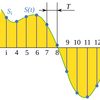Mixing down to 16-bit
Hey everybody,
I have recorded my songs in 24-bit, and as the last part of the process, as I am mastering, I am also using a 'UV22HR' plugin to convert into 16 as I create the WAV files. At least that's my understanding. However, I'm reading now that I should mix to the same bit rate as my session was recorded in.
- Read more about Mixing down to 16-bit
- 9 comments
- Log in or register to post comments
32 bit integer for interface, useful?
The new Steinberg interface supports 32 bit integer recording. I am curious if this can be expected to be a bit improvement over 24 bit. Im an the market for a higher end interface to transfer a ton of old tapes and records, as well as record and mix new stuff.
- Read more about 32 bit integer for interface, useful?
- 25 comments
- Log in or register to post comments
Benefits / Features of 32 bit AD/DA
Hey, I've noticed a couple of the new interface units employing 32 bit adda comverters (RME Adi-2 pro, sound devices mix-6).
Just wondering if there were any benefits of any kind, and what the 32 vs 24 bit depths means in an adda context in general.
- Read more about Benefits / Features of 32 bit AD/DA
- 6 comments
- Log in or register to post comments
Mastering engineer said 16 bit wav file will be too loud?
Ok im. confused...
My mastering engineer sent me a 16 bit wav file...I sent this to CDbaby for distribution. CD baby ask for a 16 bit wav file and no other format.
In conversation with the mastering engineer over Facebook chat.
Mixing & Mastering at 96kHz
Found this an interesting read on mixing & mastering at 96kHz and thought it would be worth sharing.
- Read more about Mixing & Mastering at 96kHz
- 70 comments
- Log in or register to post comments
Apogee Mic 96k or something else...what are my options?
Hi, I'm very interested in getting the Apogee 96k mic to use when using my new 128 g iPad mini, however I would like to know what other options are out there that may work for me.
Waves R-Channel 32 bit
I was putting the beginnings of a mix together this morning, working with the drum tracks.
The kick and snare are both live - the kick is an ancient Ludwig 22" from the 60's; it looks like it's been run over by a truck, but it sure still sounds good. ;) ( I have three vintage snares, a '68 Black Beauty, a '71 Suprasonic, and a Rogers wood snare).
- Read more about Waves R-Channel 32 bit
- 5 comments
- Log in or register to post comments
Render melodyne vocals before mixing: 32 or 24 bit? Levels?
Greetings all,
320 bitrate upload, playback
test for 320Kbps upload .
- Read more about 320 bitrate upload, playback
- 30 comments
- Log in or register to post comments
Tim Dobear - 96k vs. 44.1k sample rates, my real life test
An interesting read on 96k vs 44.1k sample rates and up sampling.
